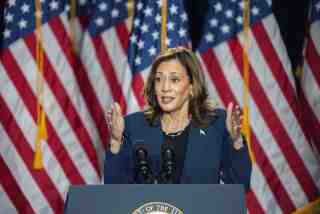Enthusiastic Republicans crowding many primary races
- Share via
Reporting from Washington — As the Republican Party’s chances of success in the fall elections increase week by week, so too has the number of Republican candidates jumping into primaries across the country. Party officials claim to welcome the enthusiasm, but in many places it’s the sort of welcome reserved for an uninvited guest.
Or eight uninvited guests, as is the case in Arkansas, where the lineup of candidates wanting to challenge Democratic Sen. Blanche Lincoln has swelled to nine. An open seat in Tennessee has four Republicans vying for the nomination, and one erstwhile Republican running as an independent. Two competitive districts in Virginia have drawn out 11 hopefuls between them. Races in Nevada, New Hampshire and California also are crowding fast.
In cases such as Arkansas’, a surplus of candidates is evidence of an eagerness to take on a politically weak Democrat. Lincoln’s approval ratings are among the lowest in the Senate. In other cases, it’s a result of internal strife between the party’s establishment and the often more-conservative newcomers. Experts say that those primaries promise to deliver very public and expensive displays of division that could undercut GOP efforts to win seats in November.
“I think it’s more likely than not to cause a major problem for Republicans,” said Larry Sabato, director of the Center for Politics at the University of Virginia. He notes that GOP candidates who emerge from crowded primaries are more likely to be conservative, reflecting the support of the most-motivated voters. That can make them less likely to attract the moderate swing voters needed to win a general election.
“A crowded primary field helps liberals in the Democratic Party and conservatives in the Republican Party, but it doesn’t necessarily help either in the fall,” he said.
A case in point is the race for Illinois governor, where seven candidates vied for the chance to take on Democratic incumbent Pat Quinn. State Sen. Bill Brady, a solid social conservative, was leading the primary vote count on Thursday with 20.3%. A Brady win would make Quinn’s chances of reelection soar, Sabato said.
Democrats say they’re trying to capitalize on Republican primaries by forcing candidates to go on the record on wedge issues that are likely to divide the base.
“Voters don’t appreciate it when a candidate takes one position on an issue in February and tries to do 180 degrees on the issue come November,” said Rep. Chris Van Hollen (D-Md.), chairman of the Democratic Congressional Campaign Committee.
Paul Lindsay, spokesman for the National Republican Congressional Committee, contends that a crowded primary “shows energy on the part of our party and our voters, which will in turn become a problem for Democrats.”
Among the most tested will be the winner of the Republican primary in Virginia’s 5th District, a conservative-leaning region where six candidates are running for the chance to face freshman Democratic Rep. Tom Perriello, who narrowly won in 2008.
State Sen. Robert Hurt, the onetime favorite, has failed to lock up support from the conservative “tea party” groups who take issue with his vote for a major tax increase. But even the tea party followers haven’t aligned behind a single candidate.
Chris LaCivita, Hurt’s campaign strategist, expressed his own frustration with the crop of newcomers. With this group, “if you can walk and chew gum at the same time, you think you can be a member of Congress,” he said.
In other places, candidates are buoyed by Republican Scott Brown’s surprise win in Massachusetts’ special Senate election. In Nevada, Lt. Gov. Brian Krolicki said he was reconsidering running for the nomination in the race against Senate Majority Leader Harry Reid. There are five Republicans already in the race.
In Arkansas, U.S. Rep. John Boozman announced his candidacy in the Senate race on Saturday, making him Republican No. 10. He is the instant front-runner, stepping on a few former and current state senators, a former colonel in the Army and a food-safety entrepreneur.
Democrats in Arkansas note that the plethora of candidates has meant that fundraising has been spread out across the field, and no one candidate has come anywhere near Lincoln’s $5-million war chest.
“They could field a football team,” joked Gabe Holmstrom, senior advisor at the Arkansas Democratic Party.
And perhaps they will. Former Minnesota Vikings running back and real estate developer Jim Lindsey is said to be eyeing a run.
More to Read
Get the L.A. Times Politics newsletter
Deeply reported insights into legislation, politics and policy from Sacramento, Washington and beyond. In your inbox twice per week.
You may occasionally receive promotional content from the Los Angeles Times.











